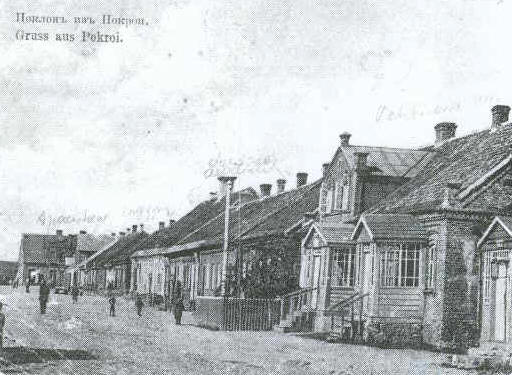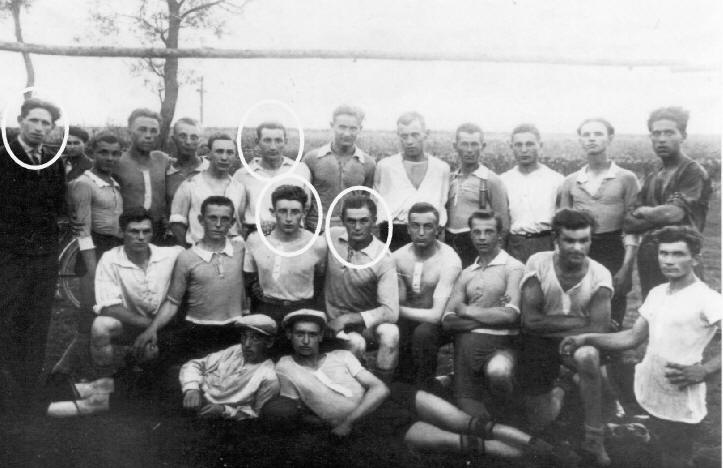
The following she told Birute Maiksteniene:
Doctor
Shreiberis was a very kind and nice man. People
of Pakruojis loved him very much. We
were very poor and when my father got sick, doctor Shreiberis
cured him for free. This he
did for a lot of poor peple. The doctorís wife was a dentist. They had two
sons. They had been baptized in to the Catholic faith, but this didnít prevent
their killing at Morkakalnis.
Many
people who lived near the church, heard the sreams of doctor Shreiberis on his
way to Morkakalnis. I visited the grave.
I
remember the house of Kolchman ( Kolitzman)
who was a rich businessman. In 1940 the Kolchmans were exiled to
Two
brothers Dovydas and
Shlomas Maizel owned the mill which gave electricity to the
town, though many citizens of Pakruojis used kerosene lamps at home.
There
were many Jewish shops in the centre of Pakruojis. The richest owners were:
Epstein, Volko, Kaplan,
Lape, Spilgietis. Our family bought herrings at Spilgietisíshop.
Another
Jewish family was Taipke and her husband . They were neighbours of
Ruhmilke. A
young couple and very nice.
My
parents and grandparents had Jewish neighbours. My
grandmother had a Jewish friend called Feige. They used to go to the river
together. My
mother (Elzbieta Slanksiniene) worked for the Jewish families. She washed their clothes, carried water
in to the houses, she was keeping fire in their houses. She was satisfied with
the salary they gave her. She was very upset when she heard about the killings
at Morkakalnis. She condemned the killers and asked God to punish them.
I
remember nice evenings when young Jewish people used to walk in the streets,
wearing holiday clothes. We, children, liked to watch them.
Some Jewish boys
were member of the Pakruojis footballclub:

photo
from 18 August 1928 with
backrow left: Shenkman,
Mordechai Latzman,
middlerow: from l to r: (third) Yisrael Eliason,
Beryl Kolitzman
--------------------------
In
the summer of 1941 the Germans occupied
The
guards who watched the place wore white bands.
Our
family moved to the house of the Jewish family Lape and he and his family had to
move to our familyís small and impoverished
house near the river.
The
Jewish women were waiting for their husbands to come home, but they didnít.
They believed their husbands would come home, once.
In
August, two weeks after the killing of the men, the women were told to pack ,
because they would be taken to their husbands. The women and children were
brought to Morkakalnis by drunken men. The women and children went calmly,
because they believed they would see their husbands and fathers again, but as
soon as they reached the fur tree forest, they realized that something terrible
would happen. They threw the packs away, hugged the children and screamed.
The
guards broke young tree branches and used them as a stick to beat the women and
to force them to go to the fur trees. There was to be seen a long hole and there
the Jewish women and children were shot.
They
killed innocent people.
For
two days the killers were always drunk.
S
We,
children, Janina said, used to visit the spot and there we could see
childrenís shoes, womenís combs.
After
the war, the synagogue was used as a storehouse,
a centre for sports and a cinema.
Janina
ends with: If there is an Eternal Judge, let He judge.
Those who are dead will be alive in the memories of those who knew them.
Janina
Mykolaitiene was born in Pakruojis and worked as a teacher at the